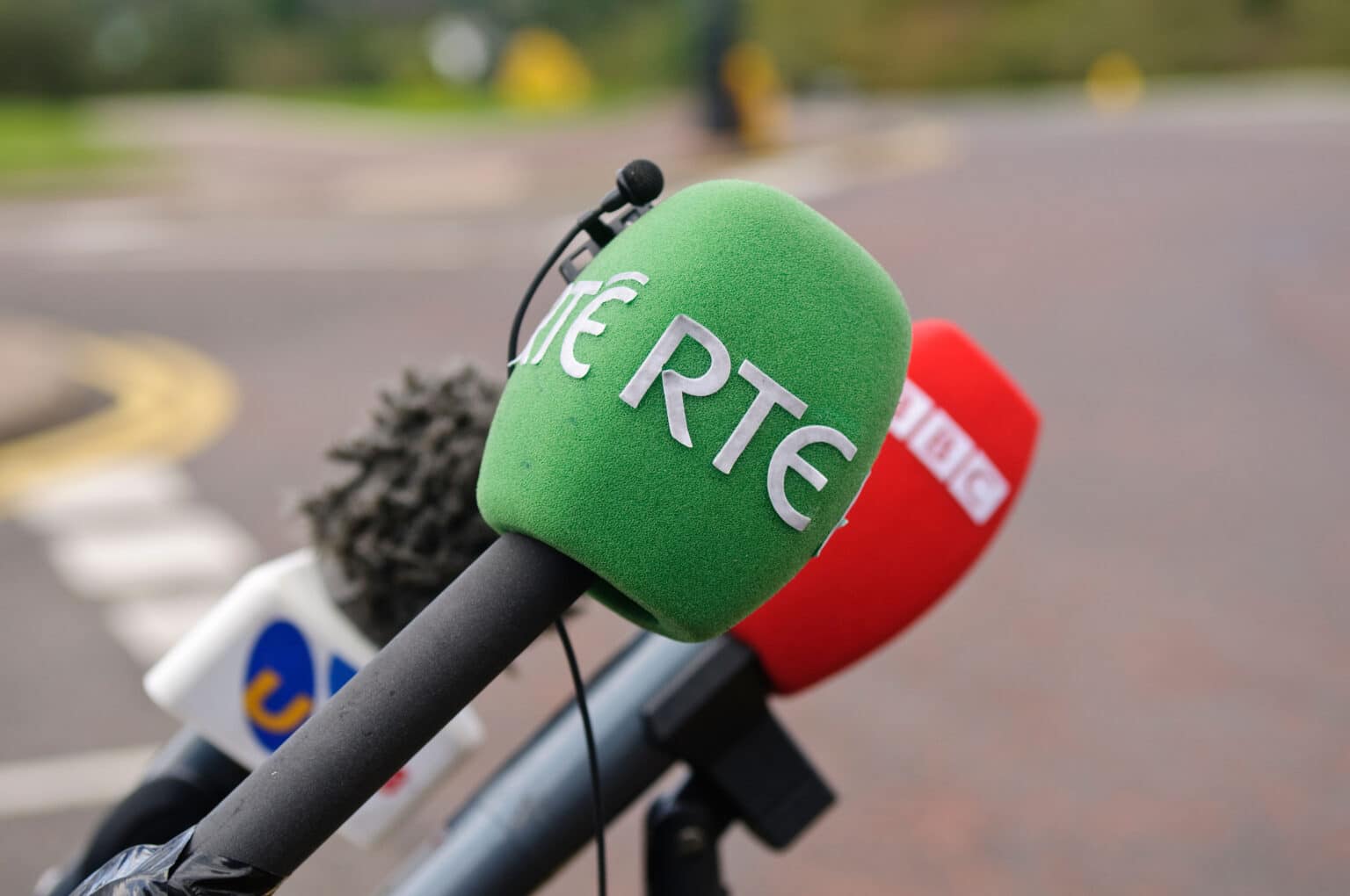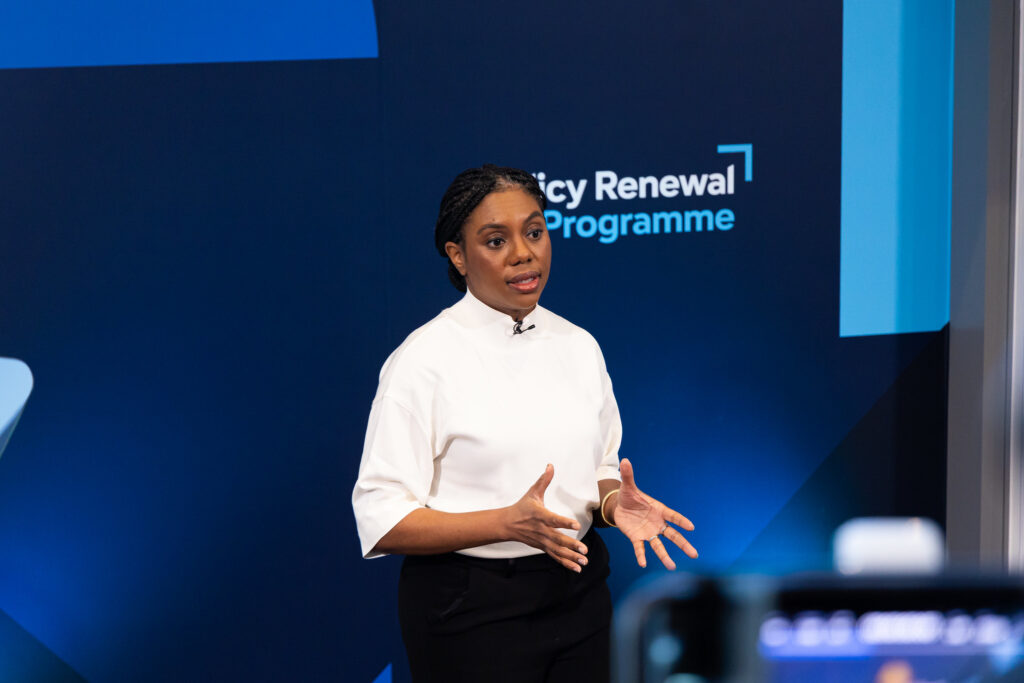Ireland’s national broadcaster has publicly apologised for failing to link recent extreme weather events to climate change, pledging to set up a dedicated climate reporting unit in the run-up to COP26.
In an unusual move, RTÉ’s Managing Director of News and Current Affairs Jon Williams tweeted that the broadcaster had been wrong not to make the connection clear, calling it a “sin of omission” and insisting that the “lesson” had been “learned”.
In an article on RTÉ’s website, the former BBC World News Editor announced that all RTÉ News journalists will be undergoing training in how to report climate science.
Williams also said a new team would be set up with the aim of reporting the “climate crisis”, beginning with “extensive coverage of COP26, the United Nations Climate Change conference in Glasgow in November”.
The broadcaster has been without an environment correspondent throughout the Covid-19 pandemic, owing to “financial challenges”.
Within 24 hours of the statement being issued, RTÉ’s flagship current affairs TV show, Prime Time, ran its first report on climate change in at least two years.
The segment focused on climate impacts as well as “attribution science”, which examines the link between specific weather events and a warming planet, and did not include the voices of lobby groups and politicians opposed to climate action, as has been its usual format.
Professor Peter Thorne, Director of Maynooth University’s Irish Climate Research and Analysis Unit (ICARUS) and a contributor to the UN Intergovernmental Panel on Climate Change, was among those interviewed.
‘Join the Dots’
Thorne recently took to social media to rebuke the broadcaster for its failure to report the link between recent extreme weather around the world and climate change.
Referring to an RTÉ report earlier this month on the extreme heatwave experienced on the US west coast and Canada, Thorne said he was “bitterly disappointed” not to see any mention of climate change, telling the broadcaster to “do better at joining the dots”.
In response, RTÉ appears to have since edited the article to include reporting on the climate angle.
The broadcaster’s sole Science and Environment Correspondent was seconded over a year ago to focus exclusively on the Covid-19 pandemic, leaving the network with no journalist dedicated to climate or environmental coverage.
In response to questions in May, Williams said it was “sadly” too much to ask for RTÉ to have a specialist environment correspondent, claiming this would only be possible “if everyone paid their TV licence”.
RTÉ has since 2010 treated the post of environment correspondent as optional, citing resource constraints.
Williams provoked further criticism this week when he quoted an out-of-date IPCC report arguing that it was “difficult, if not impossible” to make links between extreme weather events and climate change.
Reaction to RTÉ’s climate statement has been largely positive, though Green Party MEP Grace O’Sullivan tweeted that she was “not satisfied with excuses”.
“RTÉ’s job and responsibility as a public service broadcaster is to report facts. Climate change is unequivocal, urgent and headline-worthy”, she said.
Prior to this week’s surprise announcement, pressure had been mounting on RTÉ to improve its climate reporting.
The charity Irish Doctors for the Environment (IDE) last week wrote to RTÉ criticising what it described as its “abject failure of journalism and public service broadcasting”.
Its statement said this was “particularly glaring when compared with global media sources, many of whom have been explicitly and correctly attributing these events to climate breakdown”.
The group noted the findings of a recent Yale University study indicating that 70 percent of Irish respondents were “alarmed or concerned” about climate change, with 77 percent saying they needed more information about it.
Padraic Fogarty, Campaigns Officer at the Irish Wildlife Trust, told DeSmog: “It’s been really disappointing to see how RTÉ are ignoring the climate and biodiversity crisis. Activists are constantly told that ‘we need to bring people with us’ but this is impossible so long as media refuse to engage with the issue.”
“It’s disgraceful at this stage that RTÉ – once again – is operating without any dedicated environment correspondent,” he added.
Until this week, RTÉ’s only apparent change had been to add a “Climate” section on its website, its content mostly consisting of news agency reports and articles from academics, with almost no original RTÉ content.
High-Carbon Sponsorship
Among the measures IDE urged RTÉ to adopt was a reconsideration of its “sponsorship arrangements with high-carbon industries such as aviation and dairy, to avoid conflicts of interest”.
Approximately €134 million of RTÉ’s €330 million total annual revenue comes from advertising and sponsorship.
Its television weather forecast is sponsored by dairy giant Glanbia, whose recent expansion plans have been bitterly opposed by Irish environmental organisations, while its radio weather forecast is currently sponsored by Grant, a company selling oil-fired boilers.
Unusually, RTÉ allows commercial sponsors for some of its current affairs programmes, with car manufacturer Opel Ireland sponsoring the Claire Byrne Show, a mid-morning current affairs slot.
RTÉ’s weekly radio programme “Countrywide” is controversially sponsored by the Irish Farmers Journal, the publication of Ireland’s main agricultural pressure group, the Irish Farmers’ Association, which has consistently lobbied against climate legislation. The show’s presenter is also a columnist with the journal.
In response to questions from DeSmog, RTÉ said it “does not measure the percentage or programming allocated to topics, such as climate change, nor, for commercial reasons, does RTÉ publish details of advertising according to specific categories, such as the motor industry.” It argued that doing so “could put RTÉ at a competitive disadvantage in the marketplace.”
Regarding the “Countrywide” sponsorship, it insisted that sponsorship arrangements “do not impact on the editorial independence of the programme concerned.”
RTÉ supplied a detailed analysis to DeSmog of the number of times the term “climate” was mentioned on its Drivetime early evening current affairs radio programme, showing that the word had occurred 20 times in 16 months. Of these, several related to interviews with rural MPs and agricultural lobby groups opposing climate action.
While RTÉ was unable to provide a percentage breakdown, DeSmog estimates that since March 2020, the show has likely broadcast around 5,000 segments, with 0.4 per cent relating to climate change.
“This programme has focused very extensively on the climate change bill, transport, the environment, wind energy, nuclear energy and biodiversity as well as speaking to Green Party politicians both here and abroad,” RTÉ said.
‘Cock-Up, not Conspiracy’
Commenting on the ongoing criticism of RTÉ, Dr David Robbins, Director of Dublin City University’s Centre for Climate & Society said he believed “the cock-up theory is far more likely than the conspiracy one”.
Journalists fail to make the link between extreme weather events and climate change, he said, “due to reasons bound up with the norms of their profession, their newsroom cultures, and how they have reported these events before”.
Earlier this month, RTÉ apparently sought to downplay the role of climate change in recent extreme weather when it republished a Reuters news report headlined “As floods hit western Europe, scientists say climate change hikes heavy rain”, which it changed to “Experts: too soon to link floods to climate change”.
RTÉ’s Director General Dee Forbes was questioned in 2019 by the all-party parliamentary Joint Oireachtas Committee on Climate Action (Jocca), before the channel put on a well-received “Climate Week” later in the year.
A report produced by Jocca recommended that the Broadcasting Authority of Ireland should be empowered to impose climate-related quotas on all licensed broadcasters, as is the case for news, current affairs and the Irish language.
It further warned that advertising pressures “cannot undermine broadcasters’ obligations to climate content”. None of its recommendations have been adopted.
In response to questions from DeSmog before RTÉ’s statement this week, Media Minister and Green Party TD Catherine Martin said she was “considering all options for ensuring that public service broadcasting can better highlight climate issues”. She added that her “Statement of Strategy due to be published shortly will also highlight climate action and sustainability”.
A 2017 study published by Ireland’s Environmental Protection Agency (EPA) found that less than 3 percent of RTÉ’s output related to climate change or sustainability. It noted that “in Irish broadcasting, journalistic content is bundled with advertising content, giving the audience mixed messages on consumerism”.
It added that the broadcaster treats climate issues “episodically, and they are not given in-depth treatment of thematic coverage”. The study examined how RTÉ coverage around the release of all four parts of the 2014 IPCC AR5 report evolved, and noted that its flagship TV current affairs programme, Prime Time, provided no coverage of the landmark report.
The only time the programme covered climate change in this period was to host a debate involving Dr Benny Peiser of the UK climate science denial think tank, the Global Warming Policy Foundation, and Ray Bates, a long-retired Irish meteorologist and co-founder of the Irish Climate Science Forum who has consistently downplayed the impacts of climate change.
Broadcasts of this kind promote a “consensus gap”, the study added, “whereby the issue appears less settled than the scientific evidence has suggested”.
Subscribe to our newsletter
Stay up to date with DeSmog news and alerts







